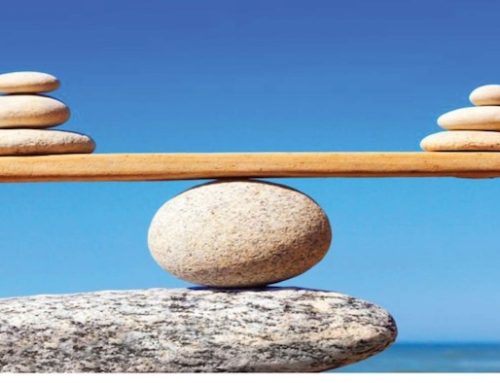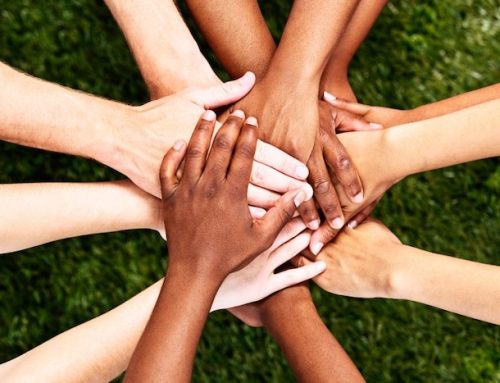“What the hell is going on with (fill in the blank)?” is a question I have heard (and myself asked) often in the last few years. There may be a shortage of computer chips, childcare, housing, rental cars, and building materials, but there is no shortage of things that just don’t make sense. When our expectations are met by realities that are wildly discordant, anxiety flourishes and leaders scramble. It is very hard to fix something that can’t be explained. Dissonance becomes a source of cultural malaise. Disequilibria, which economists argue is nearly always a short-term phenomenon, causes wild swings in pricing as markets attempt to settle on an intersection of supply and demand. Collectively, these disturbances to normalcy create gaps and pathways to be exploited by mercenary actors who create all kinds of mischief as they extract wealth and power from instability. The vast majority of us stand by and become innocent victims; too often, collateral damage.
The malaise reported by most Americans today, which contradicts relatively positive economic data on employment, wages, and asset values, is evidence of anxiety that emanates from what we cannot yet tabulate, but know in our hearts: the world we thought we knew is over. Today’s world is one where power politics trumps economics, demographics, science, social norms, the rule of law, and even morality. Where reason is torqued beyond recognition in favor of coercion to subjugate—to bring to heel—adversaries who, in many cases, were previously treated as worthy citizens of a united realm of freedom and protected by established norms and laws.
In the last few years, the Trump worldview has metastasized where power is both a means and an end, and it has spread to both ends of the political spectrum: right and left. Trump’s attempted January 6th coup, followed by Putin’s World War II-ish styled invasion of Ukraine, and Alito’s triumphantly patriarchal draft opinion overturning Roe v. Wade are of the same modality: coercive power deployed to destroy norms, laws, lives, and liberties. We might expect such bald-faced hostility from Trump and Putin, but a Supreme Court justice? Alito’s opinion is more like a political rant than considered judicial position. It’s as if he is a candidate trying to fire up a political base. In it you will find anger, arrogance, and even belligerence clearly unbecoming of a justice on the Supreme Court. Power politics ignores all of the guardrails of civil society and it has now permeated every institutional corner of our political system—including the hallowed chambers of the Supreme Court—that traditionally existed to keep nefarious actors at bay.
Getting past this pervasive retrogression to power politics that is underway in America and the world, and which aims to set the clock of humanity back more than half-a-century, will require, among other things, an unflinching determination to assert the will of truth. Marching with clever slogans on signs will not prevail over those drinking shots of power like bro-boys at a bachelor party. Their power-inebriated state will only fuel their belligerence toward those they wish to subjugate. As each of Trump, Putin, and Alito have recently done, they will claim victimhood to provide themselves with a veil (however sheer) of protective moral authority. Yes, claiming “witch hunt,” “Nazi aggression,” and “cancel culture” is a slight-of-hand designed simply to grab a slice of moral legitimacy. Those who live in carefully constructed and maintained information bubbles crafted by these types of actors will stupidly, but fervently, go along. The rest of us need to wake up, organize, and elect those who will recover our institutions of normalcy from the grasp of bad actors.
I know, I hear you, I am tired of this shit too. I am tired of being lied to. I am tired of watching people get away with it. I am tired of watching the progress of generations squandered. I am tired of watching people who are in a position to affect such a recovery of our institutions preening under the lights of cable TV—more concerned with their exposure to potential donors than saving America. I am tired of feeling ashamed every time I think of how I might explain how my generation let this happen in make-believe conversations with my dead ancestors and real time conversations with my kids. My psyche and my conscience spend too much of the day and night beating each other up. On too many days, humanity just wears me out.
For the foreseeable future, calm may have to replace joy as the definition of happiness as it was during my grandparent’s day. Eyes often reveal the disposition of generations. My maternal grandmother, Lunetta Belle Stinehart Goodfellow, had soft brown eyes that seldom were raised high enough to be level with the horizon. Downcast, yet determined; perched above lips that were perpetually pursed, my grandmother’s eyes expressed what was important to her: getting through the challenges of the day with a stern sense of resolve wrapped in the puritanical disposition of a committed Methodist who knew (or at least hoped) the afterlife might bring joy after enduring Word War I, the Great Depression, and World War II. Her self-image was never about herself—it was communal. It was never “this is me,” it was only ever “this is us,” where “us” was family and community.
My father, John Reynolds Steding, a member of the so-called “Greatest Generation” whose eyes were also brown, seldom cast his below the horizon. His disposition was less about getting through than going beyond, which may be why he was an aeronautical engineer and was instrumental in the U.S. space program. Still, his self-image remained embedded in the concept of “us” but was larger. “Us” was indeed family and community, but it was also very much about country. The invention of nuclear weapons raised everyone’s eyes above the horizon. “Incoming” was not a train arriving at the station, it was a nuclear warhead inbound from the Soviet Union. Life was allowed to expand beyond the limits of his parents’ generation, propelled by America’s emergence as a superpower, but it was bounded by the prospect of human annihilation.
My eyes are blue (go figure). My generation—the Boomers—were the first generation to dismiss “this is us” in exchange for “look at what I did.” Not we, I. Boomers blame Millennials for this shift from the collective to the individual, but no, it was us. We were hyper-individualists who waged our battles as entrepreneurs and solo practitioners while often disregarding the wisdom of safety nets. We were loosed upon the world as free-agents who found both guidelines and guardrails as nuisances to be largely ignored. Forget the horizon, our eyes danced up and down, side to side, like a junkie juiced on amphetamines. No one wanted to have an opportunity elude their field of vision. Given our rather manic dispositions we, ironically but necessarily, became wizards of risk management. As pendulums swing, it did when we became parents. Us Boomers—who considered independence as a condition that should be sprinkled with steroids—then turned about and raised the most dependent generations (Millennials and Zs) of all time.
My daughter (a Z) received a double-dose of blue eyes (with huge eyelashes to match) that are frankly, stunning. Millennials and Zs took the Boomer notion of “look at what I did” and amped it up, loudly but simply, to just “look at me!” The eyes of her generation too often stare into that small camera lens fixed on the back of a smartphone that represent the window to a future determined by algorithms. Which is, sadly and most certainly, unsustainable. (See: social media.) But in her eyes, I also see question marks within the reflected candescent halo ring of the Zoom lighting; curiosity mixed with a generation-skipping resolve that Lunetta Belle would easily recognize. Millennials and Zs may feel a sense of whiplash under today’s crisis-level challenges, but their gaze is not fixed, nor are their minds sclerotic. They understand the dynamics of fluidity and, with a nimble sense of determination, believe they can send the world turning in a better direction. In the face of current events, we need them to come into their own, and fast. The rest of us need to get out of their way.
Today, abundance is backsliding to a return to scarcity. Capital markets view the world as much less valuable—trillions less—than it was just four months ago. Bad luck has become an expectation rather than the occasional nuisance. Risk has a new locus that is never far away from imposing its consequences. Truth is under attack in every corner of the world. We must acknowledge the reality of power politics: it has launched a scourge of inhumanity that is submerging the world in a bile of hate. From abusing flight attendants to dropping bombs on children’s hospitals, we must stand together to fight inhumanity rising from dissonance, disequilibria, and chaos that empowers tyrants and zealots. We must summon what energy we have left to support the next generations of leaders—the Millennials and Zs—to save their own futures.
We will likely have to give up the big highs to avoid the depths of existential lows. We must settle for calm as the new joy. Above all else, we have to get back to the “this is us” disposition of older generations. Or, we can don red MAGA caps and learn to goose-step march in May Day parades on the Washington Mall. We do have a choice. For now.






